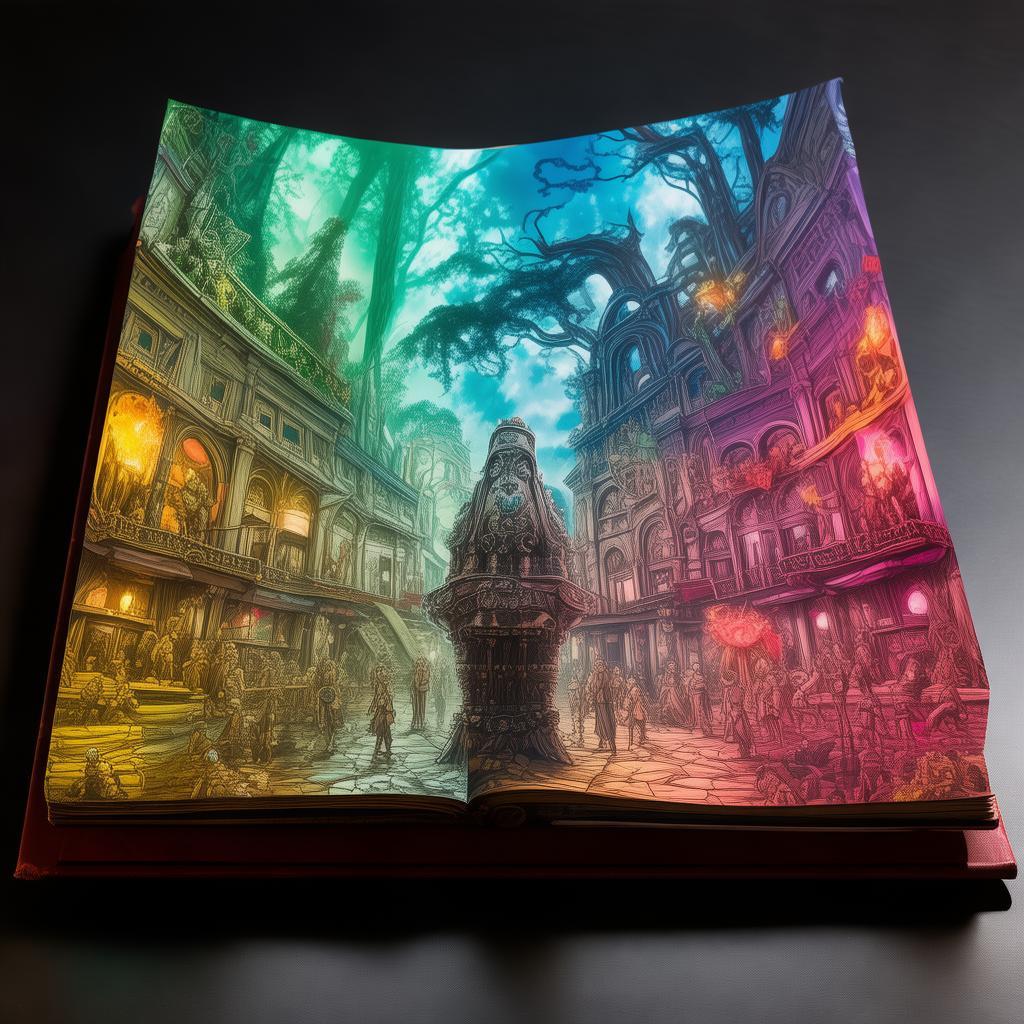The Baller's Blissful Breakthrough: A Basketball Achievement Story
The air was electric as the clock ticked down to zero. The gymnasium was alive with the roar of a crowd that had come to witness the greatest moment of a young man's life. Marcus had worked for this moment since he could remember, and now, with the ball in his hands, he felt the weight of the world upon his shoulders.
Marcus had always been a prodigy on the basketball court. His natural talent, coupled with relentless practice, had earned him a scholarship to one of the nation's top universities. But it wasn't just the talent; it was the fire in his eyes, the passion that drove him to be the best. He had overcome countless obstacles, from the discrimination he faced as a young black player to the physical injuries that threatened to derail his career.
As the game approached its climax, Marcus's team was down by two points with seconds left on the clock. The pressure was immense, but Marcus had thrived on it. He had spent countless hours perfecting his skills, visualizing this very moment. Now, it was time to execute.
The ball was passed to him, and Marcus felt the familiar rush of adrenaline. He took a deep breath, his focus sharp as a tack. The crowd held its breath as he dribbled the ball across the court, his eyes never leaving the basket. The defenders swarmed around him, but Marcus was a step ahead, a dance of anticipation and precision.
With a swift move, he slipped past his defender, the crowd cheering him on. The seconds ticked away, and Marcus's heart raced. He knew what was at stake. This was his moment, his chance to make a name for himself, to prove that he was more than just a talent; he was a champion.
As he approached the three-point line, Marcus could feel the weight of history on his shoulders. He had seen the struggle of black athletes in the basketball world, and he was determined to break through the glass ceiling. The ball left his hands with a perfect arc, the kind that only the most skilled of players could execute. The gymnasium erupted in a cacophony of cheers as the ball swished through the net.
The game was over. Marcus had hit the game-winning shot, the kind that would be replayed for years to come. The team rushed to him, lifting him in celebration. The coach hugged him tightly, tears streaming down his face. Marcus looked around, taking in the moment. He had done it. He had broken through.
The following days were a whirlwind of interviews, accolades, and fanfare. Marcus was hailed as a hero, a symbol of what hard work and determination could achieve. But for Marcus, the celebration was just the beginning. He knew that the real challenge was yet to come.
As he continued his journey, Marcus faced new challenges. The pressure to maintain his performance was immense, and the scrutiny from the media and fans was relentless. But Marcus had learned to harness that pressure, to use it as fuel. He knew that he had to stay true to himself, to the player who had worked tirelessly to get to this point.
One night, as he sat alone in his hotel room, Marcus reflected on his journey. He thought about the countless hours spent perfecting his skills, the sacrifices made, and the dreams that had almost been crushed. But then he thought about the moment the ball left his hands, the moment he knew he had broken through.
Marcus knew that his breakthrough was not just personal. It was a breakthrough for all the young black athletes who looked up to him, who saw him as a role model. He realized that his journey was not just about basketball; it was about breaking barriers, about showing the world that anything was possible with hard work and dedication.
As Marcus stepped onto the court for his next game, he felt a renewed sense of purpose. He knew that he had a responsibility to represent not just himself, but all the young players who had come before him and those who would come after. He was not just a basketball player; he was a symbol of hope and inspiration.
The game was intense, the competition fierce. Marcus's opponent was a formidable player, someone who had been in the spotlight for years. The game was neck-and-neck, and Marcus found himself in a familiar position: down by two points with seconds left on the clock.
The ball was passed to him, and Marcus felt the familiar rush of adrenaline. He took a deep breath, his focus sharp as a tack. The crowd held its breath as he dribbled the ball across the court, his eyes never leaving the basket. The defenders swarmed around him, but Marcus was a step ahead, a dance of anticipation and precision.
With a swift move, he slipped past his defender, the crowd cheering him on. The seconds ticked away, and Marcus's heart raced. He knew what was at stake. This was his moment, his chance to make a name for himself, to prove that he was more than just a talent; he was a champion.
As he approached the three-point line, Marcus could feel the weight of history on his shoulders. He had seen the struggle of black athletes in the basketball world, and he was determined to break through the glass ceiling. The ball left his hands with a perfect arc, the kind that only the most skilled of players could execute. The gymnasium erupted in a cacophony of cheers as the ball swished through the net.
The game was over. Marcus had hit the game-winning shot, the kind that would be replayed for years to come. The team rushed to him, lifting him in celebration. The coach hugged him tightly, tears streaming down his face. Marcus looked around, taking in the moment. He had done it. He had broken through.
The following days were a whirlwind of interviews, accolades, and fanfare. Marcus was hailed as a hero, a symbol of what hard work and determination could achieve. But for Marcus, the celebration was just the beginning. He knew that the real challenge was yet to come.
As he continued his journey, Marcus faced new challenges. The pressure to maintain his performance was immense, and the scrutiny from the media and fans was relentless. But Marcus had learned to harness that pressure, to use it as fuel. He knew that he had to stay true to himself, to the player who had worked tirelessly to get to this point.
One night, as he sat alone in his hotel room, Marcus reflected on his journey. He thought about the countless hours spent perfecting his skills, the sacrifices made, and the dreams that had almost been crushed. But then he thought about the moment the ball left his hands, the moment he knew he had broken through.
Marcus knew that his breakthrough was not just personal. It was a breakthrough for all the young black athletes who looked up to him, who saw him as a role model. He realized that his journey was not just about basketball; it was about breaking barriers, about showing the world that anything was possible with hard work and dedication.

As Marcus stepped onto the court for his next game, he felt a renewed sense of purpose. He knew that he had a responsibility to represent not just himself, but all the young players who had come before him and those who would come after. He was not just a basketball player; he was a symbol of hope and inspiration.
The game was intense, the competition fierce. Marcus's opponent was a formidable player, someone who had been in the spotlight for years. The game was neck-and-neck, and Marcus found himself in a familiar position: down by two points with seconds left on the clock.
The ball was passed to him, and Marcus felt the familiar rush of adrenaline. He took a deep breath, his focus sharp as a tack. The crowd held its breath as he dribbled the ball across the court, his eyes never leaving the basket. The defenders swarmed around him, but Marcus was a step ahead, a dance of anticipation and precision.
With a swift move, he slipped past his defender, the crowd cheering him on. The seconds ticked away, and Marcus's heart raced. He knew what was at stake. This was his moment, his chance to make a name for himself, to prove that he was more than just a talent; he was a champion.
As he approached the three-point line, Marcus could feel the weight of history on his shoulders. He had seen the struggle of black athletes in the basketball world, and he was determined to break through the glass ceiling. The ball left his hands with a perfect arc, the kind that only the most skilled of players could execute. The gymnasium erupted in a cacophony of cheers as the ball swished through the net.
The game was over. Marcus had hit the game-winning shot, the kind that would be replayed for years to come. The team rushed to him, lifting him in celebration. The coach hugged him tightly, tears streaming down his face. Marcus looked around, taking in the moment. He had done it. He had broken through.
The following days were a whirlwind of interviews, accolades, and fanfare. Marcus was hailed as a hero, a symbol of what hard work and determination could achieve. But for Marcus, the celebration was just the beginning. He knew that the real challenge was yet to come.
As he continued his journey, Marcus faced new challenges. The pressure to maintain his performance was immense, and the scrutiny from the media and fans was relentless. But Marcus had learned to harness that pressure, to use it as fuel. He knew that he had to stay true to himself, to the player who had worked tirelessly to get to this point.
One night, as he sat alone in his hotel room, Marcus reflected on his journey. He thought about the countless hours spent perfecting his skills, the sacrifices made, and the dreams that had almost been crushed. But then he thought about the moment the ball left his hands, the moment he knew he had broken through.
Marcus knew that his breakthrough was not just personal. It was a breakthrough for all the young black athletes who looked up to him, who saw him as a role model. He realized that his journey was not just about basketball; it was about breaking barriers, about showing the world that anything was possible with hard work and dedication.
As Marcus stepped onto the court for his next game, he felt a renewed sense of purpose. He knew that he had a responsibility to represent not just himself, but all the young players who had come before him and those who would come after. He was not just a basketball player; he was a symbol of hope and inspiration.
The game was intense, the competition fierce. Marcus's opponent was a formidable player, someone who had been in the spotlight for years. The game was neck-and-neck, and Marcus found himself in a familiar position: down by two points with seconds left on the clock.
The ball was passed to him, and Marcus felt the familiar rush of adrenaline. He took a deep breath, his focus sharp as a tack. The crowd held its breath as he dribbled the ball across the court, his eyes never leaving the basket. The defenders swarmed around him, but Marcus was a step ahead, a dance of anticipation and precision.
With a swift move, he slipped past his defender, the crowd cheering him on. The seconds ticked away, and Marcus's heart raced. He knew what was at stake. This was his moment, his chance to make a name for himself, to prove that he was more than just a talent; he was a champion.
As he approached the three-point line, Marcus could feel the weight of history on his shoulders. He had seen the struggle of black athletes in the basketball world, and he was determined to break through the glass ceiling. The ball left his hands with a perfect arc, the kind that only the most skilled of players could execute. The gymnasium erupted in a cacophony of cheers as the ball swished through the net.
The game was over. Marcus had hit the game-winning shot, the kind that would be replayed for years to come. The team rushed to him, lifting him in celebration. The coach hugged him tightly, tears streaming down his face. Marcus looked around, taking in the moment. He had done it. He had broken through.
The following days were a whirlwind of interviews, accolades, and fanfare. Marcus was hailed as a hero, a symbol of what hard work and determination could achieve. But for Marcus, the celebration was just the beginning. He knew that the real challenge was yet to come.
As he continued his journey, Marcus faced new challenges. The pressure to maintain his performance was immense, and the scrutiny from the media and fans was relentless. But Marcus had learned to harness that pressure, to use it as fuel. He knew that he had to stay true to himself, to the player who had worked tirelessly to get to this point.
One night, as he sat alone in his hotel room, Marcus reflected on his journey. He thought about the countless hours spent perfecting his skills, the sacrifices made, and the dreams that had almost been crushed. But then he thought about the moment the ball left his hands, the moment he knew he had broken through.
Marcus knew that his breakthrough was not just personal. It was a breakthrough for all the young black athletes who looked up to him, who saw him as a role model. He realized that his journey was not just about basketball; it was about breaking barriers, about showing the world that anything was possible with hard work and dedication.
As Marcus stepped onto the court for his next game, he felt a renewed sense of purpose. He knew that he had a responsibility to represent not just himself, but all the young players who had come before him and those who would come after. He was not just a basketball player; he was a symbol of hope and inspiration.
The game was intense, the competition fierce. Marcus's opponent was a formidable player, someone who had been in the spotlight for years. The game was neck-and-neck, and Marcus found himself in a familiar position: down by two points with seconds left on the clock.
The ball was passed to him, and Marcus felt the familiar rush of adrenaline. He took a deep breath, his focus sharp as a tack. The crowd held its breath as he dribbled the ball across the court, his eyes never leaving the basket. The defenders swarmed around him, but Marcus was a step ahead, a dance of anticipation and precision.
With a swift move, he slipped past his defender, the crowd cheering him on. The seconds ticked away, and Marcus's heart raced. He knew what was at stake. This was his moment, his chance to make a name for himself, to prove that he was more than just a talent; he was a champion.
As he approached the three-point line, Marcus could feel the weight of history on his shoulders. He had seen the struggle of black athletes in the basketball world, and he was determined to break through the glass ceiling. The ball left his hands with a perfect arc, the kind that only the most skilled of players could execute. The gymnasium erupted in a cacophony of cheers as the ball swished through the net.
The game was over. Marcus had hit the game-winning shot, the kind that would be replayed for years to come. The team rushed to him, lifting him in celebration. The coach hugged him tightly, tears streaming down his face. Marcus looked around, taking in the moment. He had done it. He had broken through.
The following days were a whirlwind of interviews, accolades, and fanfare. Marcus was hailed as a hero, a symbol of what hard work and determination could achieve. But for Marcus, the celebration was just the beginning. He knew that the real challenge was yet to come.
As he continued his journey, Marcus faced new challenges. The pressure to maintain his performance was immense, and the scrutiny from the media and fans was relentless. But Marcus had learned to harness that pressure, to use it as fuel. He knew that he had to stay true to himself, to the player who had worked tirelessly to get to this point.
One night, as he sat alone in his hotel room, Marcus reflected on his journey. He thought about the countless hours spent perfecting his skills, the sacrifices made, and the dreams that had almost been crushed. But then he thought about the moment the ball left his hands, the moment he knew he had broken through.
Marcus knew that his breakthrough was not just personal. It was a breakthrough for all the young black athletes who looked up to him, who saw him as a role model. He realized that his journey was not just about basketball; it was about breaking barriers, about showing the world that anything was possible with hard work and dedication.
As Marcus stepped onto the court for his next game, he felt a renewed sense of purpose. He knew that he had a responsibility to represent not just himself, but all the young players who had come before him and those who would come after. He was not just a basketball player; he was a symbol of hope and inspiration.
The game was intense, the competition fierce. Marcus's opponent was a formidable player, someone who had been in the spotlight for years. The game was neck-and-neck, and Marcus found himself in a familiar position: down by two points with seconds left on the clock.
The ball was passed to him, and Marcus felt the familiar rush of adrenaline. He took a deep breath, his focus sharp as a tack. The crowd held its breath as he dribbled the ball across the court, his eyes never leaving the basket. The defenders swarmed around him, but Marcus was a step ahead, a dance of anticipation and precision.
With a swift move, he slipped past his defender, the crowd cheering him on. The seconds ticked away, and Marcus's heart raced. He knew what was at stake. This was his moment, his chance to make a name for himself, to prove that he was more than just a talent; he was a champion.
As he approached the three-point line, Marcus could feel the weight of history on his shoulders. He had seen the struggle of black athletes in the basketball world, and he was determined to break through the glass ceiling. The ball left his hands with a perfect arc, the kind that only the most skilled of players could execute. The gymnasium erupted in a cacophony of cheers as the ball swished through the net.
The game was over. Marcus had hit the game-winning shot, the kind that would be replayed for years to come. The team rushed to him, lifting him in celebration. The coach hugged him tightly, tears streaming down his face. Marcus looked around, taking in the moment. He had done it. He had broken through.
The following days were a whirlwind of interviews, accolades, and fanfare. Marcus was hailed as a hero, a symbol of what hard work and determination could achieve. But for Marcus, the celebration was just the beginning. He knew that the real challenge was yet to come.
As he continued his journey, Marcus faced new challenges. The pressure to maintain his performance was immense, and the scrutiny from the media and fans was relentless. But Marcus had learned to harness that pressure, to use it as fuel. He knew that he had to stay true to himself, to the player who had worked tirelessly to get to this point.
One night, as he sat alone in his hotel room, Marcus reflected on his journey. He thought about the countless hours spent perfecting his skills, the sacrifices made, and the dreams that had almost been crushed. But then he
✨ Original Statement ✨
All articles published on this website (including but not limited to text, images, videos, and other content) are original or authorized for reposting and are protected by relevant laws. Without the explicit written permission of this website, no individual or organization may copy, modify, repost, or use the content for commercial purposes.
If you need to quote or cooperate, please contact this site for authorization. We reserve the right to pursue legal responsibility for any unauthorized use.
Hereby declared.









